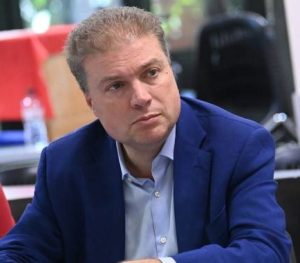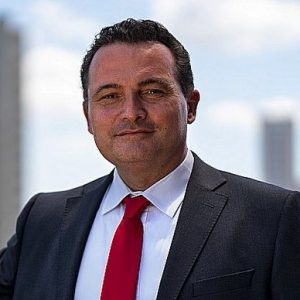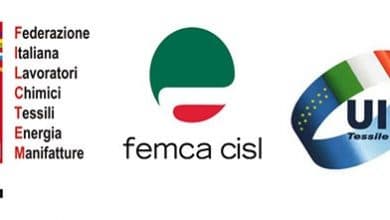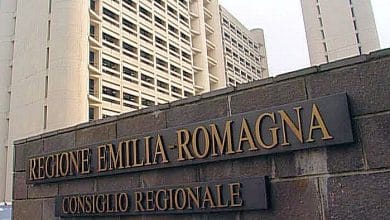
It was said that the Covid 19 pandemic would represent a watershed: we realized the crucial importance of a public and universal health system, designed to guarantee the health of each individual in the country. Conversely, even the announcement by the WHO that decreed the end of the pandemic emergency (with all the ifs and buts...) was not enough to rekindle a public reflection on the issue of the importance of healthcare organization. With all that follows.
We participated on the evening of Friday 5 May in a public debate organized in the province of Bologna in a club of the Democratic Party, at Spazio143 in Funo di Argelato, which saw the participation ofRegional Councilor for Health Raffaele Donini and the Hon. Andrea De Maria deputy in the PD parliamentary group.
Theme: The health system and local health.
Definancing of Healthcare it is a process that has been going on for about fifteen years and finds responsibility in all the political forces that have taken over the government in recent years. Today, however, the unreimbursed expenses for Covid join the effects of inflation and increases in energy costs causing a tension that is unbearable especially for the regions that ensure most of the health services through public structures.
Here we are in Emilia Romagna and we experience this state of affairs as a double attack: on the one hand the definancing by the Government and on the other a real indictment of the territories indicated as responsible for the deficit.
Councilor Donini is also Coordinator of the Health Commission of the Conference of Regions then he rattles off the numbers of this crisis: 5 billion missing from the National Health Fund for 2023: for the Emilia Romagna region they mean almost 400 million euros.
 «In 2022 we closed the budget in balance thanks to our resources that we have allocated for the third consecutive year - recalls Donini - after having used over 1 billion of our resources to balance the budgets of the last three years, in the fourth year we told the companies to curb spending because we cannot allow the 2023 deficit to turn into drastic measures by the government». Translated, we do not want to suffer the Health Commissioner, not for mismanagement on our part, but for non-payments by the state. Prudence is therefore the watchword.
«In 2022 we closed the budget in balance thanks to our resources that we have allocated for the third consecutive year - recalls Donini - after having used over 1 billion of our resources to balance the budgets of the last three years, in the fourth year we told the companies to curb spending because we cannot allow the 2023 deficit to turn into drastic measures by the government». Translated, we do not want to suffer the Health Commissioner, not for mismanagement on our part, but for non-payments by the state. Prudence is therefore the watchword.
The commissioner could only be triggered if the deficit was higher than 5% of the regional health budget, so there are absolutely no conditions, but certainly 2023 does not promise to be a minor challenge.
Not only that: the Government itself has certified that in the national ranking that evaluates the satisfaction of Essential Levels of Assistance the Emilia-Romagna region is in first place and will therefore have access to a prize fund. The commissioning of an excellence does not seem likely.
In any case, it was enough just to pronounce that word that the announcement effect was triggered, naturally negative, and requests for services soared and unfortunately there was also a peak in resignations among healthcare personnel exhausted by three years of emergencies, shifts backbreaking and missed holidays.
Complicating a situation of shortage of both medical and nursing personnel is not a good thing, precisely because the budget restrictions will force the Emilia Romagna region to a sharp deceleration in turnover during 2023. From 185% in 2020 we have already moved on to 138% in 2021 and to 105% in 2022.
The Emilia Romagna region and probably many other following regions are at a crossroads: cut benefits or rally citizens in defense of public service.
Councilor Donini announces that he has no intention of playing defense only and will come this week presented in the Senate a bill to address this state of public health suffering. We would like to link the increase in the National Health Fund to 7.5% of GDP in five years; finance the fund for non-self-sufficiency and repeal the cap on personnel hiring at 1.4% towards 2014.
The Conference of Regions will also present a real one emergency reform. The new model plans to reduce the pressure on emergency rooms by encouraging citizens with low complexity emergencies (white and green codes) to first activate a qualified telephone contact with healthcare operators.
Assistance will be provided in the new Emergency Centers which will be distributed throughout the territory and will operate 24 hours a day or, alternatively, directly to the patient's home by the medical-nursing teams. An organization that would make hospital interventions more timely and help citizens by providing them with adequate care in the nearest centers, without long waits or even at home.
At the same time, reducing as much as possible improper access to the emergency room. In 2022, the 66% of accesses to the ED in Emilia-Romagna, which totaled around 1,750,000, in fact concerned white or green codes, and almost all (95%) did not need hospitalization.
Furthermore, considering that the 76% of citizens arrives autonomously at the emergency room, we would like to mediate the 99% of accesses via 118, allowing for early taking charge and correct distribution of patients.
Editor's note The fate of the NHS is certainly of interest to the Scientific Informer. Its role was born together with the NHS and is regulated by the same laws.
Related sources:
Emilia-Romagna Region - Reform of the Emergency Urgency
The Republic - Healthcare. Donini: “Emilia Romagna will not be commissioned” – 7 April
Corriere di Bologna – 15 March
Related news: Scotti (Fimmg): Agenas data consistent with our complaint about the desertification of territorial medicine





